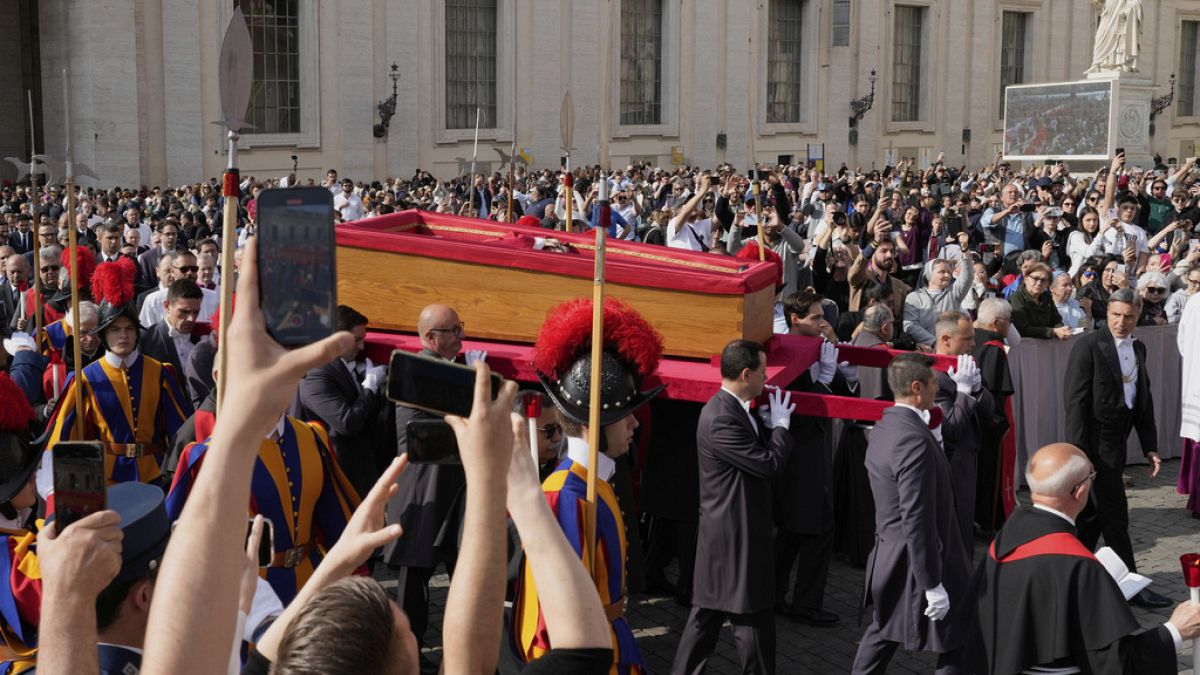The Italian capital will once again be Caput Mundi for 24 hours as world leaders are in Rome for the funeral of Pope Francis.
Around 170 national delegations, international leaders, kings and queens are in attendance.
Many observers expect the final farewell to be more than a moment of recollection, and may turn into an occasion for informal political exchanges between leaders.
Funeral diplomacy is nothing new, explains Pasquale Ferrara, Director General for Political Affairs and International Security at the Italian Foreign Ministry. “It has happened in the past at other major events such as this one. Take, for example, the funeral of former Japanese Prime Minister Shinzo Abe, during which Australia and Japan began conversations for a joint statement on security in the Asia-Pacific region.”
When he was assassinated in 2022, Shinzo Abe retained a powerful role both within Japan and on a global scale. More than 200 top-level delegations attended his funeral.
Hundreds of heads of states and foreign dignitaries also attended the funeral of Queen Elizabeth II.
Death overcomes all barriers
Another recent example would be the funeral of former Iranian President Ebrahim Raisi, who died in a helicopter crash in May 2024.
Even leaders of countries with stormy relations can brush past each other and whisper political words around a coffin under the pretext that death and love overcome all barriers.
For example, Arab countries with traditionally difficult relations with Iran broke the ice and sent delegations at the highest level to Tehran.
The farewell ceremony of President Raisi marked the first protocol visits to Tehran by a Tunisian president – Kais Saied at the time – and an Egyptian foreign minister – Sameh Shoukry – since the Islamic revolution in 1979.
Both leaders listened in silence to a funeral service critical of the United States and Israel.
The logistics of chaos
Direct political exchanges between leaders in such circumstances can create diplomatic, protocol and logistical challenges.
With large crowds, differing locations and tight schedules, everything becomes more complicated, particularly when conflicts arise between Italian and Vatican leadership, explains Ambassador Ferrara.
“It is not easy to manage exchanges and communications between diplomatic representatives in Rome at the Holy See and at the Italian state, nor for the delegations that come from abroad and often stay for only a few hours,” says Ambassador Ferrara.
Everything will therefore depend on the will of the political and religious leaders present. Improvisation sometimes helps human relations, especially at a time of mourning. A high-level event such as a papal funeral could favour informal dialogues as opposed to official negotiations taking place elsewhere.
“Such summits and meetings require long and careful preparation,” says Ambassador Ferrara. “But speed can also be an advantage – in other words, you can find the people and particularly the world leaders most open to a dialogue”.
During his papacy, Pope Francis created a strong link between papal action and the great political issues of our time, notably climate change, international conflicts and social issues on a global scale. In so doing, he forged relationships with foreign dignitaries and people from around the world.
Today many of those individuals are present to pay their respects. For world leaders, the funeral could offer opportunities for dialogue that may otherwise not be possible.
Read the full article here


